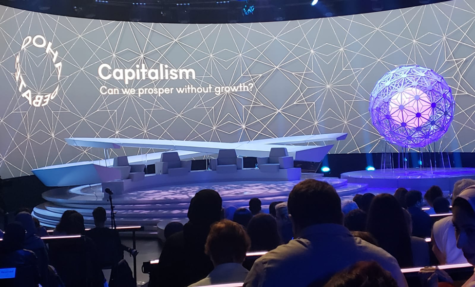The Dark Side of Economic Growth – Qurated
Every day, we hear the significance of global economic growth and development to Third World countries, but it’s time we take a moment to look at the other side of things, particularly the cost of economic growth on the working class in the Global South. The clothes you wear, the food you eat and even the phone you hold has a story – a story of someone who worked hours to make it, and at what cost. Here are some documentaries, books and movies that take you through the cost of such economic growth, and challenge your knowledge about the world we live in today.
“Made in Bangladesh” is an insightful documentary about the effects of fast fashion. The main subject, Mark Kelly, travels to investigate the impacts of fast fashion on Bangladesh—home to most of the Canadian fast fashion brand factories. Through the documentary, we see how the push to create fast and cheap fashion on time makes factories in Bangladesh put production schedules and business’ demands ahead of safety or workers’ rights, causing many tragic deaths and severe psychological impacts.
The documentary “Nero’s Guests,” directed by Deepa Bhatia, sheds light on the increasing number of farmers’ suicides in India caused by agriculture industrialization. It is narrated through Palagummi Sainath, rural affairs editor of The Hindus. Sainath has been deeply involved with rural and agricultural issues in India and has been following the situation for a long time, making his commentary extremely insightful. The documentary unfolds behind the scenes of the growing economy in India and sheds light on the negative impacts of industrialization on the farmers.
“The Boy Who Harnessed The Wind”
The movie “The Boy Who Harnessed The Wind” is based on the true story of William Kamkwamba, a young Malawian boy who built a windmill from scratch to save his family and village from starvation. Written, directed and starred by Chiwetel Ejiofor, the movie [which is available on Netflix] portrays the harmful impacts of capitalism and world trade on farmers living in small villages in Malawi. Though it ends on a happy note, many families who are currently suffering from drought and famine do not get the same ending.
“Neocolonialism: The Last Stage of Imperialism”
In his book ‘Neocolonialism: The Last Stage of Imperialism’, Kwame describes in detail the exploitation of Africa’s natural resources during the first twenty years following WWII under the promise of prosperity and economic growth. He argues that colonial countries control global trade by putting policies that tend to favor them.













